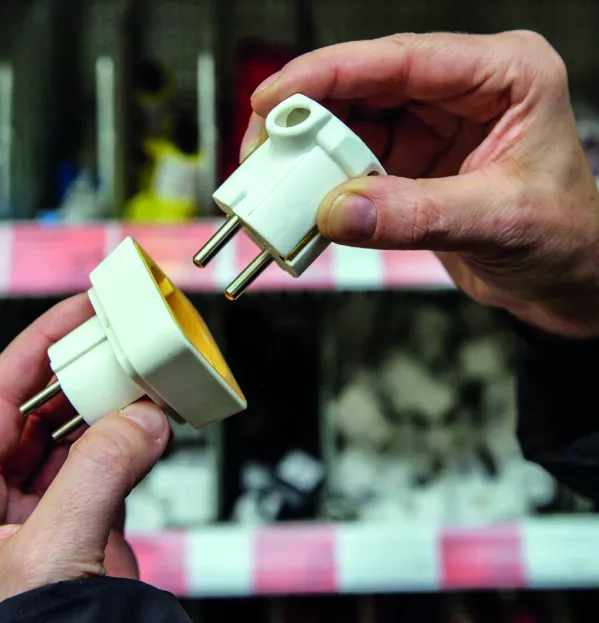How to adapt sex education for students with SEND

For learners with special educational needs and disabilities (SEND), there is very little specific instruction in the new relationships and sex education guidance, except a note that schools may adapt teaching to meet those needs. So a legitimate question that both specialist provision and mainstream schools may be asking is: how might we need to adapt our offering to cater for certain students with SEND?
In terms of content, there should be no cutting back: students need it all. There is a misconception that learners with SEND can handle less content than their peers in the mainstream. Learners with SEND do need the teaching to be differentiated, but the content must be the same.
Regardless of reading age, or cognition, learners with SEND need to understand their bodies and the emotions and feelings they experience. To miss anything out is to disadvantage learners with SEND in such a way that may have significant and long-lasting ramifications for their adult life. This is a matter of equality.
The differentiation needs to come in the form of the time spent on topics, on the background given, resources and teaching methods, and on the level of overlearning.
Another misconception is that inappropriate touch, and abuse more generally, is something that is done to people with additional needs. It is true that people with additional needs are more likely to be victims of sexual abuse and exploitation because of increased vulnerability, but learners with SEND need to be taught comprehensively about good and bad touch to ensure that they understand their responsibilities towards other people as well as their own rights.
Sex educaton for SEND students
In addition, RSE for learners with SEND has been focused on preventing and protecting, but a truly inclusive curriculum needs to be sex and relationships positive and give all learners the tools they need to go forth and lead healthy and happy adult lives.
Mencap research in 2016 found that only 3 per cent of people with SEND lived as a couple with their partner, compared with 70 per cent of the general population. The research cited a lack of empowering education as a major cause, along with a lack of privacy and opportunities to meet people and to lawfully express their sexuality.
In the SEND classroom, this should mean a lot of time being spent on the subject of sex and relationships. Teaching must cover private body parts, good and bad touch, different relationships and families, online safety and puberty, all starting from primary.
In secondary, this should develop to include intimacy, conception, pregnancy choices including termination, pornography, STIs, sexuality and pleasure.
This list is not exhaustive, and teaching must be responsive to learners’ understanding and their specific circumstances.
For instance, explaining that sex must only happen in a safe, private place where you will not be disturbed may require explanation of, for example, why the toilets at school, while private, are not as private as your bedroom.
For older learners with SEND who live in accommodation where overnight visitors may not be allowed, there must be discussion about where and how an intimate relationship may take place. Teaching must be literal, without analogy or euphemisms, and with no question sidestepped or unanswered.
Learners with SEND may find the subject intimidating, and it is common for learners, particularly those with difficulties understanding social situations, to become so agitated that they leave the room. While it may be inappropriate to insist that the learner comes back in, it is essential that they are supported afterwards, their worries are addressed and they catch up on everything they have missed.
In the special-school classroom, it is in many ways easier to ensure a fully comprehensive and accessible curriculum for learners than it may be for one or two learners with SEND in mainstream school. But in the latter case, these learners must not be overlooked. If the learner with SEND is struggling to access the learning, then adaptation needs to be made. This could include targeted intervention, small-group work or one-to-one provision.
Regardless of the setting or school, the golden rules remain the same:
* Ensure that the timetable offers appropriate, ring-fenced time for RSE as a defined subject.
* Create a welcoming, familiar and safe learning environment.
* Have clear rules for working together and behaviour expectations.
* Open each lesson with a welcome activity.
* Use tactile and sensory resources.
* Have plenty of time for discussion and questions.
* Be ready to veer off plan where misconceptions arise.
* Give adequate opportunity for overlearning.
* Be literal.
* Be sex positive.
* Be LGBT+ inclusive.
* End each lesson with a familiar closing activity.
* Be available between lessons for questions.
For learners with SEND, it is important to remember that RSE provides life education. High-quality RSE can provide the skills and knowledge needed to enjoy a happy, safe and fulfilling adult life. The new guidance offers the opportunity to empower young people with unique needs to enjoy their sexuality without harm, and, as teachers, we should embrace and celebrate this.
Rachael Baker is senior RSE specialist at the Sex Education Forum
For further advice, support and guidance on delivering top-quality RSE to learners with SEND, visit sexeducationforum.org.uk. The Sex Education Forum is part of the National Children’s Bureau
This article originally appeared in the 14 February 2020 issue
You need a Tes subscription to read this article
Subscribe now to read this article and get other subscriber-only content:
- Unlimited access to all Tes magazine content
- Exclusive subscriber-only stories
- Award-winning email newsletters
Already a subscriber? Log in
You need a subscription to read this article
Subscribe now to read this article and get other subscriber-only content, including:
- Unlimited access to all Tes magazine content
- Exclusive subscriber-only stories
- Award-winning email newsletters